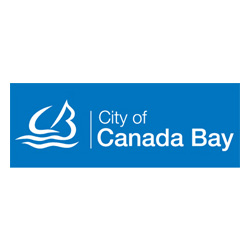Kathy Jones, speaking as a board member of newDemocracy, discussed this challenge in a speech to the International Association for Public Participation (IAP2). Overcoming this distrust of politicians and planning requires finding innovative ways to communicate not only with those residents who are already “engaged and enraged”, but also with community members who are hard-to-reach....Continue reading
Library
God Does Not Play Dice, But People Should: Random Selection in Politics, Science and Society
Authors: Bruno S. Frey, CREMA & Lasse Steiner, University of Zurich March 1, 2014 – University of Zurich, Department of Economics, Working Paper No. 144 Abstract:This paper discusses and proposes random selection as a component in decision-making in society. Random procedures have played a significant role in history, especially in classical Greece and the medieval...
Time for citizens to decide how to stop election campaign rorting
Jonathan O’Dea | Sydney Morning Herald | 30 April 2014 Following more explosive revelations from the Independent Commission Against Corruption on Monday, Premier Mike Baird has identified political lobbying and election campaign funding as major issues for our state government. He has indicated support for tighter regulation of lobbyists and public funding of election campaigns....
Decision accuracy in complex environments is often maximized by small group sizes
Authors: Albert B. Kao and Iain D. Couzin, Department of Ecology and Evolutionary Biology, Princeton University Abstract Individuals in groups, whether composed of humans or other animal species, often make important decisions collectively, including avoiding predators, selecting a direction in which to migrate and electing political leaders. Theoretical and empirical work suggests that collective decisions...Continue reading
SMH | Opinion | Luca Belgiorno-Nettis
Forget democracy, we need a new way to govern Sydney Morning Herald, April 22, 2014 Ten years ago, in 2004, I decided to jump off the merry-go-round of political party fund-raisers. I found both the rubber chicken and the political offering equally unappetising. My Liberal and Labor party hosts, on the other hand, seemed perfectly...
Daily Telegraph News Local: Citizens’ Jury appointed by Sydney council comes up with 25 recommendations for a safer city
By JAMES GORMAN A GREATER variety of entertainment options for different age groups is one of the key recommendations made by a citizens’ jury looking into Sydney’s troubled night-life. In September last year, the City of Sydney formed the jury, made up of 43 randomly selected citizens from across the city. The jurors met five...Continue reading
City of Canada Bay Policy Panel (2014)
The City of Canada Bay has once again appointed the Foundation to conduct a citizens’ Policy Panel to provide policy advice to Council on lease conditions fair for the proposed use where Council-owned buildings are formally leased to third parties for their sole use on a discounted or subsidised community basis. The City of Canada...Continue reading
Geoff Gallop. Manning Clark Lecture. 3 March 2014
On March 3 2014 Geoff Gallop delivered the Manning Clark Lecture in Canberra, making the case for a new way forward for the Australian Republican Movement through the use of deliberative democracy. The ‘third republic’ – as Geoff calls it – would be more likely to be achieved if those advocating change would be willing...

